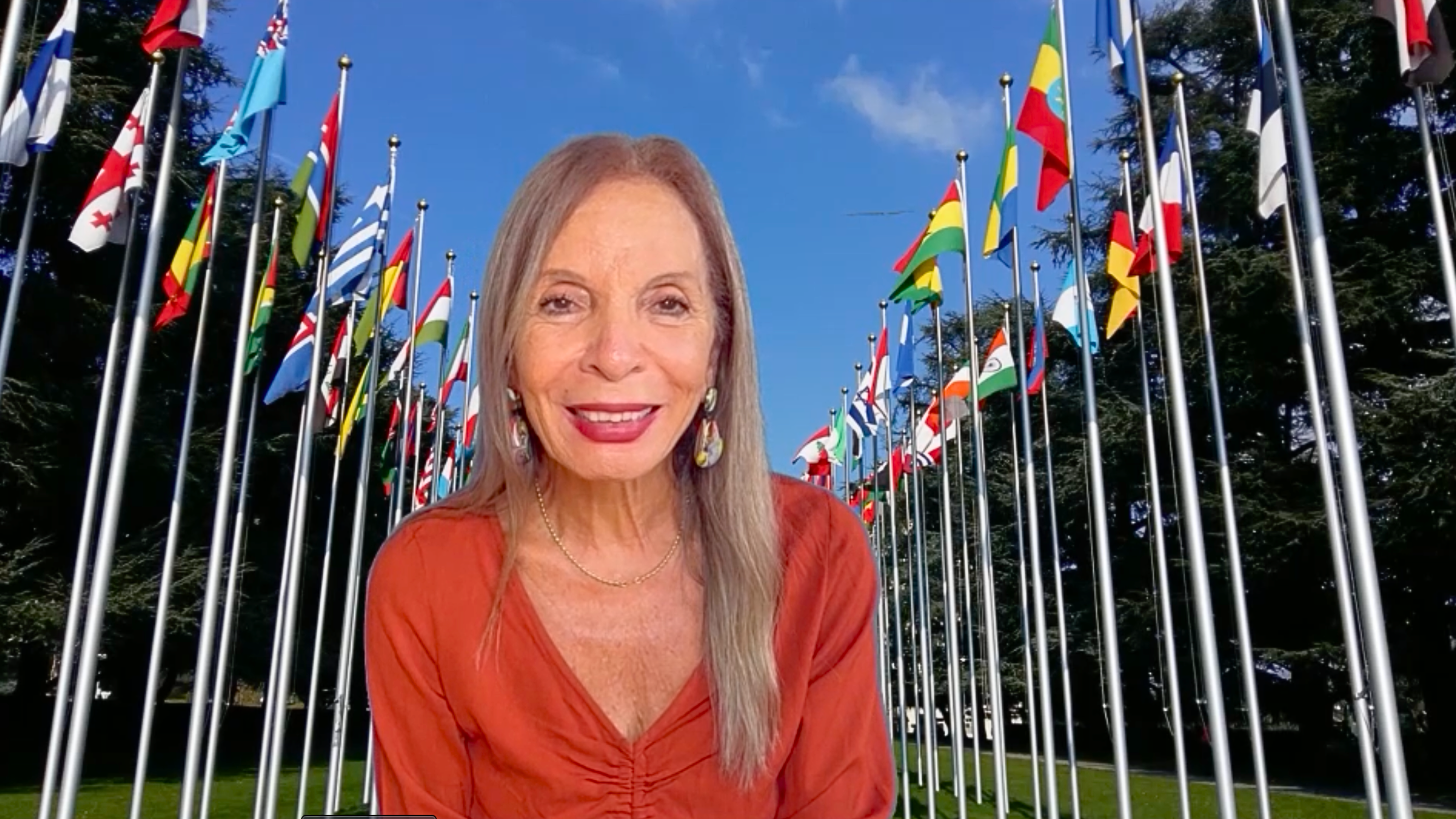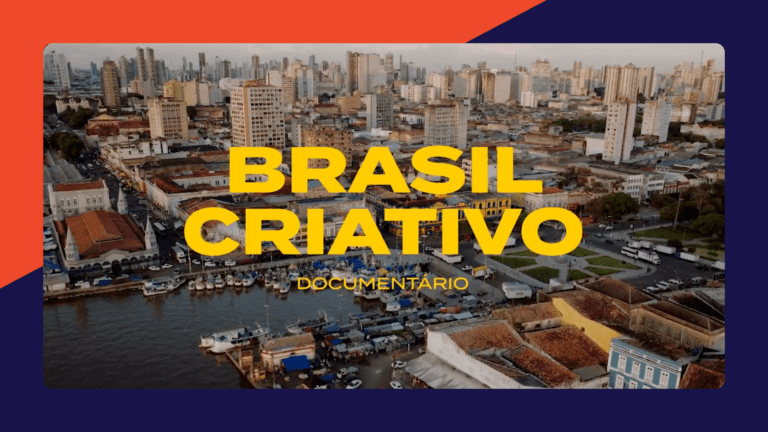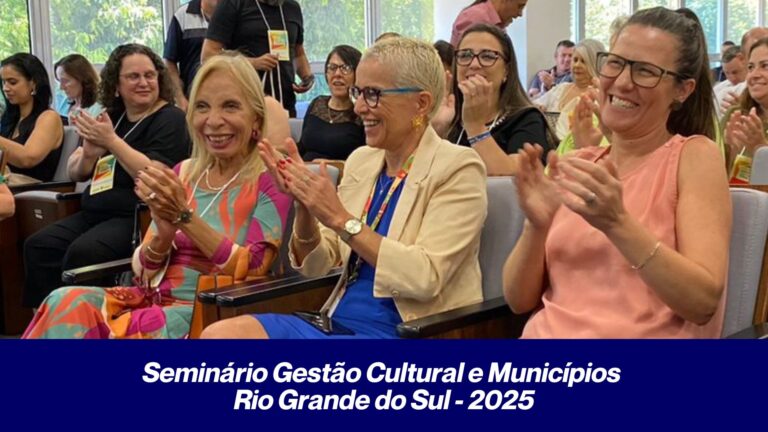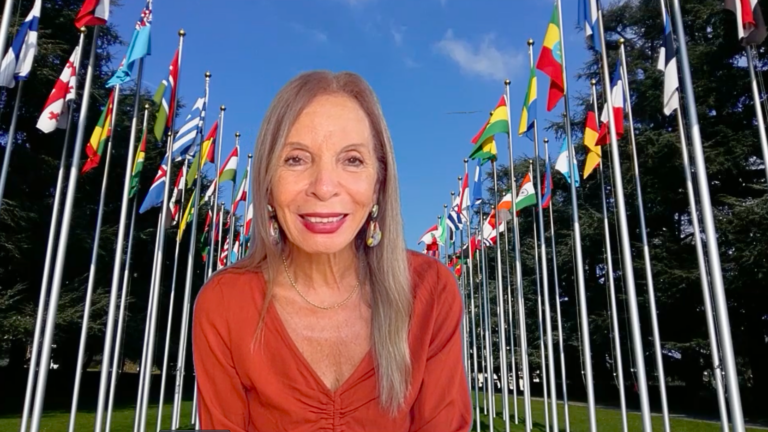Co-founder and partner of the World Creativity Organization, she is a prominent woman reference in creative leadership within the history of the United Nations. With determination and sensitivity, the Brazilian challenged the barriers of traditional economies to unleash human creativity worldwide as an economic driver—a journey that earned her the title of the “Mother of the Creative Economy.”
Throughout history, some individuals not only embrace creativity as a defining trait of their identity but also elevate it into a guiding principle to reimagine the world. Edna dos Santos-Duisenberg, the Brazilian economist who rose to the highest ranks of international diplomacy, is one such rare personality. Her journey is both a tale of pioneering spirit and a testament to how a powerful idea — the creative economy — can be transformed into a global movement.
Brazilian Determination in a Global World
Every transformative biography begins with an origin. Born in Brazil, Edna grew up in a context that often confined women to supporting roles rather than leadership positions. Yet, from an early age, she challenged this narrative. Gifted with a global vision and an insatiable curiosity, Edna ventured abroad, determined to reshape the reality of an unequal world. She faced an environment where gender and origin biases posed real obstacles, but her determination and intellect proved to be powerful tools.
Em 1983, Edna ingressou na Conferência das Nações Unidas sobre Comércio e Desenvolvimento (UNCTAD), em Genebra. Como uma jovem economista mulher em uma organização liderada quase exclusivamente por homens, sua presença já era, por si só, uma disrupção. Mais importante, porém, foi sua capacidade de introduzir novas ideias, como a necessidade de conectar os produtores do Sul Global ao mercado internacional, rompendo os ciclos históricos de dependência econômica.
Architect of Global Solutions
The 1990s were a time of profound transformation. The end of the Cold War marked the beginning of a new global order, where political and economic borders became increasingly permeable under the influence of accelerated globalization. The United Nations Conference on Trade and Development (UNCTAD), led by Brazilian Secretary-General Rubens Ricupero, became a pivotal space for rethinking global development strategies. It was in this context that Edna dos Santos-Duisenberg emerged as a creative and strategic force.
As Chief of Staff to Ricupero, Edna played a central role in developing new approaches to international trade and sustainable growth. Working during a period when globalization brought opportunities but also growing challenges for developing economies, she helped design initiatives aimed at balancing the interests of Global South nations with the evolving economic dynamics of the global market.
Edna’s ability to navigate this complex landscape and contribute to the formulation of multilateral policies placed her at the heart of historic debates. While Ricupero articulated a vision of inclusive and ethical development on the global stage, Edna solidified the administrative and strategic foundations that transformed this vision into tangible reality.
This period was emblematic not only for its political significance but also for the boldness of incorporating new voices into the international dialogue—a role Edna epitomized as a Brazilian woman holding prominent positions during one of the most pivotal moments of the 20th century.
The Mother of the Creative Economy
While John Howkins is widely recognized as the “Father of the Creative Economy,” Edna dos Santos-Duisenberg is internationally acknowledged as the “Mother of the Creative Economy,” who helped the concept grow and expand to all nations within the UN system, starting with the São Paulo Consensus. As a true creative leader, Edna did not confine herself to established paths; she envisioned transforming the global economy by recognizing creativity as a vital driver of development.
Between 2004 and 2012, she spearheaded the creation of two pioneering UN reports (2008 and 2010) that not only gave a name and identity to the Creative Economy movement but also established the epistemological foundations still used today by trade blocs, nations, and local governments in crafting public policies for the sector. These reports became essential tools for designing economic development strategies rooted in creativity, directly impacting millions of people worldwide.
The ideas championed by Edna at the helm of UNCTAD’s Creative Economy Program redefined how countries and governments perceived cultural industries and creativity. By translating creativity into an intangible economic asset, she demonstrated that cultural industries were not merely spaces for leisure or artistic expression but powerful creative goods and services capable of generating jobs, sustainable growth, and social inclusion.
They became a global benchmark for the development of public policies at various governmental levels, enabling countries to adopt the Creative Economy as a driver of economic development, integrating it into their growth strategies. This impact extended across diverse regions, from developing nations to developed countries, allowing economies to transform by embedding creativity as one of their driving forces.
Edna’s legacy is not limited to the immediate impact of these reports but also lies in the sustainability of the global movement she helped propel. Her vision allowed governments worldwide to use the Creative Economy as a strategic tool for economic diversification, innovation, and employment. Countries that once viewed culture and creativity as luxuries or peripheral sectors now recognize them as central engines of economic and social transformation.
From public policies fostering innovation in the cultural sector to the creation of training programs and support for small and medium-sized creative enterprises, the impact of Edna’s reports continues to deliver tangible benefits. Millions of people have directly benefited from the growth of the Creative Economy within their respective nations.
With her ability to connect culture, economy, and innovation, Edna established a clear path for countries to adopt a new way of thinking about development—one that was not limited to traditional sectors but embraced creativity as a key asset. This legacy not only changed the global landscape of the Creative Economy but also significantly contributed to more local governments and societies around the world recognizing the potential of cultural industries as a powerful driver of economic development.
A Legacy in the Making
After nearly 30 years of transformative service at the UN, Edna dos Santos-Duisenberg decided to take the next step. Even after retiring from the United Nations system in 2012, her influence remained unwavering. As a global consultant and speaker, she continued to shape public policies and serve as a reference in the field of the Creative Economy, sharing her vision at international conferences and debates. Her unique ability to translate complex concepts into clear, actionable narratives solidified her as one of the most influential figures on the global stage, always emphasizing the central role of creativity in global solutions to economic and social challenges.
In 2024, Edna took another significant step. Alongside Lucas Foster, a visionary essential to the global creativity movement’s expansion, she co-founded the World Creativity Organization (WCO), taking on the role of Vice President for Global Partnerships. Under her leadership, the WCO aims to amplify the impact of Creative Economy Leadership on a global scale, connecting governments, businesses, organizations, and individuals committed to innovation and sustainable development.
The partnership between Edna and Lucas was a powerful combination of experience and innovation. Edna, with her vast diplomatic background and deep knowledge of global policies, and Lucas, with his entrepreneurial mindset and ability to transform ideas into concrete actions, formed a complementary leadership team capable of propelling the WCO to new heights. Together, they not only continue Edna’s work at the UN but have expanded her ideas, broadening the WCO’s mission to revolutionize the role of creativity in both local and international communities.
The co-founding of the WCO represents a legacy in the making—a movement that reinforces Edna’s commitment to making creativity an essential pillar of economic, social, and sustainable development. Under the joint leadership of Edna and Lucas, the organization has the potential to become a transformative global force, with the capacity to shape public policies that foster innovation, inclusion, and growth in every corner of the world.
This new chapter in her journey not only keeps alive the impact of her pioneering work but also broadens her vision, using the World Creativity Organization as a convergence point for all those who believe in the transformative power of creativity.



